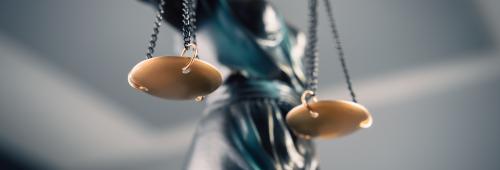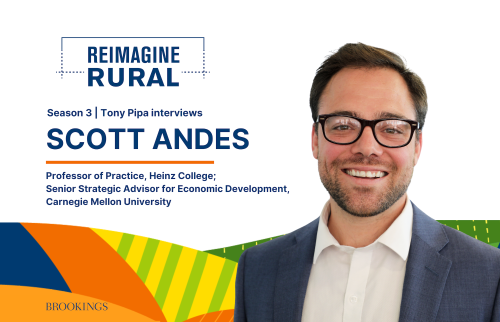On May 9, Filipinos elected a new president, Rodrigo Duterte. The long-time mayor of Davao City is the first Philippine president to hail from the southern islands of the archipelago. There, he established a “can-do” reputation on the back of brutal crackdown on crime, which won him the sobriquet “the Punisher.” During his controversial, profanity-laced campaign (his comments on rape, for instance, are truly regrettable), the tough-talking, cavalier eventual winner was described as the “Donald Trump of the Philippines.” He established that his priorities would be to confront crime, drugs, and corruption with a firm hand. Indeed, during a televised debate, Duterte claimed he was even prepared to kill his own children if they were involved in drugs.
Getting the Philippines out of its funk
Duterte’s success reflects a mood in Philippine society today. The Philippines has been a beacon of democracy in Southeast Asia for some time. Long before the Arab Spring or “Reformasi” (the massive social movement that brought down Suharto’s 32-year rule in Indonesia in 1998), the “People’s Revolution” against the Marcos regime in 1986 fired the imagination.
Yet until very recently, the Philippines had not reaped any economic dividends from democratization. For many years following the “People’s Revolution,” the Philippine economy lurched along, plagued by endemic corruption and incompetent leadership. So deep was the malaise, the country became known as the new “sick man of Asia.” The lack of economic opportunity drove its women—among the most highly educated in the world—to seek employment abroad as housemaids and domestic helpers (remittances from these sources account for 10 percent of GDP). The issue is in fact a larger one, as there is a growing educated class frustrated with the lack of opportunity and upward social mobility. It is this mood that Duterte has tapped into.
[T]here is a growing educated class frustrated with the lack of opportunity and upward social mobility.
It remains to be seen though, now that he has won, if Duterte can “walk the talk.” The fact is that Duterte’s anti-establishment credentials and populist positions on poverty and corruption run sharply athwart an oligarchy that has long been an entrenched part of Philippine society.
Despite impressive economic growth rates over the last few years under the Benigno Aquino III administration, the Philippines has been beset by a growing wealth disparity. To get at this problem, Duterte will have to have to leave behind his provincial mindset to govern at the national level, where these problems are amplified. Specifically, he will have to deal with a rent-seeking culture and a powerful aristocracy that controls huge chunks of the economy. It will take more than tough talk and populism to create a more equitable distribution of wealth and opportunity.
In the neighborhood
It is still too early to say, but indications are that foreign policy issues will probably not be a priority for Duterte, with two exceptions (neither of which are of his own choosing). Given his unpredictability, few would venture to say with any certainty how he might act on them.
First, Duterte will have to handle the fallout from the arbitration tribunal rulings on the Philippine case against China’s massive claims in the South China Sea. Most observers agree that from the 15 items awaiting the tribunal’s decision, the majority will be ruled in favour of the Philippines. This would constitute a moral victory for Manila, but would also pose potential problems for the new government in terms of relations with China. Probably mindful of this, Duterte has already spoken of his readiness to engage in dialogue with China on the South China Sea. More to the point, given his likely emphasis on domestic economic issues, it is quite possible that Duterte will pursue a more pragmatic policy towards Beijing with an eye to Chinese investments in infrastructure development. On the other hand, true to character, Duterte also declared that he would set out on his own jet ski to the South China Sea to plant the Philippine flag. Populist posturing aside, at issue is whether Duterte’s unpredictability will jeopardize Manila’s current alignment with fellow ASEAN claimant, Vietnam, or its ongoing support for American efforts to exercise freedom of navigation rights in the South China Sea in response to China’s expansive claims.
Second, Duterte will be in office when the Philippines assumes the chairmanship of ASEAN in 2017. On the occasion of its 50th anniversary (ASEAN was formed in 1967), the Association would be looking to the Philippines, a founder-member, to demonstrate much-needed regional leadership. At stake is nothing less than the unity of ASEAN, which of late has come under increasing strain because of the South China Sea disputes. Duterte said very little about ASEAN during his campaign. Yet one thing should be clear. Given the complex challenges that the region is likely to face in the coming year, Duterte would be well-advised that the imperative of ASEAN unity will require more diplomatic nous and less saber-rattling bravado.
The Brookings Institution is committed to quality, independence, and impact.
We are supported by a diverse array of funders. In line with our values and policies, each Brookings publication represents the sole views of its author(s).




Commentary
Will Rodrigo Duterte walk the talk?
May 13, 2016